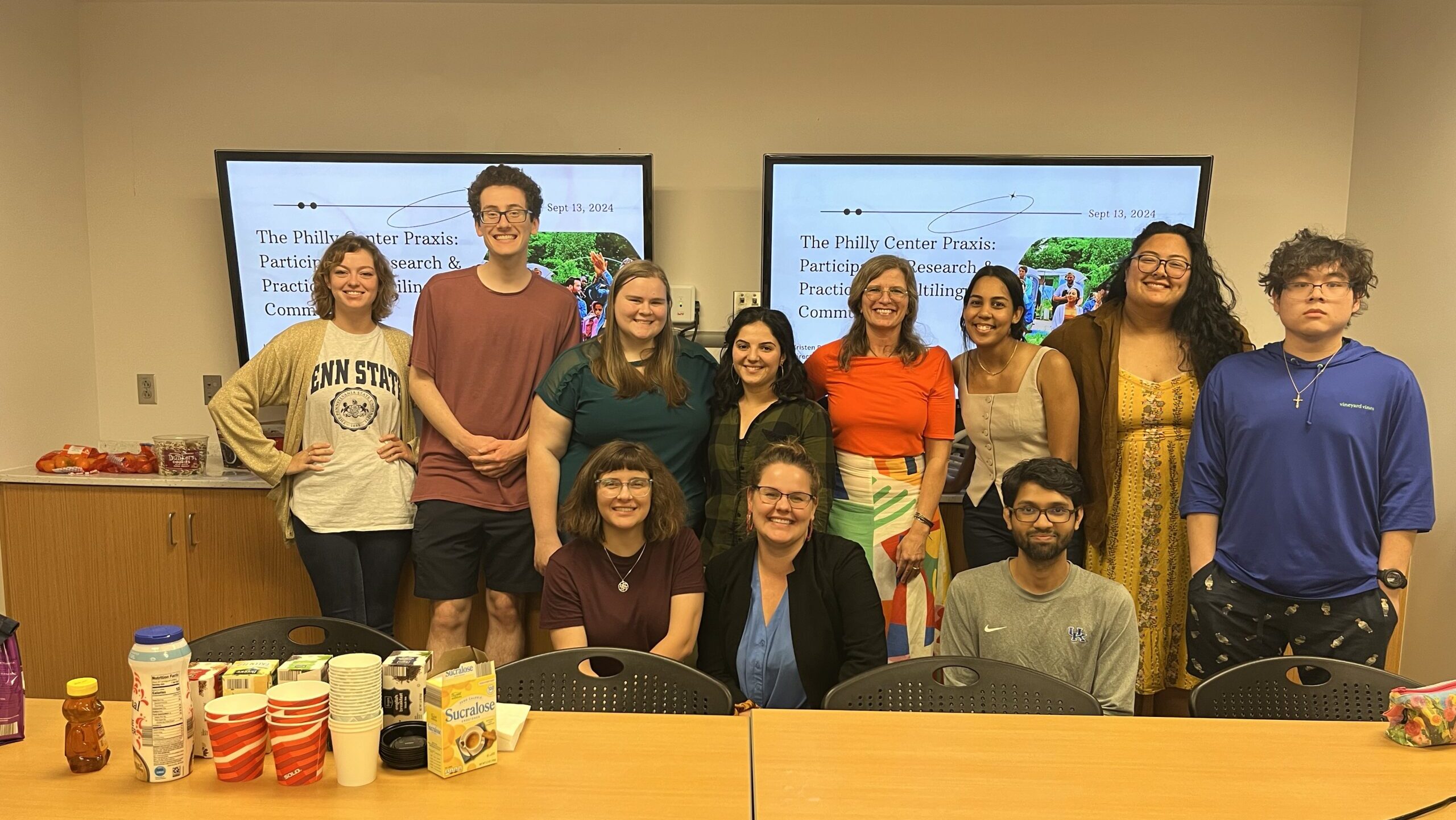
At the heart of higher education is a commitment to equipping students with the skills, experiences, and perspectives they need to excel beyond the classroom — skills like critical thinking and effective listening; experiences in community engagement and co-creating research-driven initiatives; and perspectives on social and language justice.
The team at the Penn State Center Philadelphia recently held a workshop that helped graduate students in Penn State’s linguistic diversity program understand and apply those values. The day focused on participatory research and practice for multilingual communities and was led by Kristen Goessling, director of participatory research, and Carly Pourzand, director of community-driven impact. It provided participants with an in-depth understanding of participatory action research (PAR) and how it can be an empowering tool for community organizing and social justice. The goal of the workshop was to foster meaningful relationships and design research that respects and amplifies the voices of those most affected by the work — an essential skill for any researcher, organizer, or student committed to community-driven solutions.
During the workshop, students got an in-depth look at the principles and application of PAR, which challenges the traditional boundaries of research by emphasizing collaboration with communities and recognizing their expertise. Participants discussed how to define research as an inclusive practice, involving those impacted by the work as active partners. This approach encourages students to think beyond academia and consider how their research can foster meaningful change.
“One of the most important lessons we want students to take away is that research is most impactful when it’s participatory and fosters meaningful collaboration,” said Goessling. “It’s about building trust, amplifying community voices, and working together to co-create solutions that matter.”
The workshop included interactive exercises that introduced students to practical examples of language justice and community organizing in Philadelphia and pushed them to think critically about their roles as both researchers and advocates. They explored scenarios like:
- Research and organizing skills training for non-English restaurant workers
- Coalition building for Immigrant Workers’ Center
- Partnership building: accountability and asking for help among activists
- Teaching non-English speakers to complete an online Research Ethics Certification Program
These activities and discussions emphasized how PAR concepts can be applied to address challenges in multilingual communities and examined the intersections of linguistics, social justice, and community organizing. Students saw firsthand how research could be tailored to respect and uplift diverse linguistic identities with equity and representation.
“Community organizing is about building relationships and creating spaces where everyone’s voice matters,” said Pourzand. “We want students to understand that effective research goes hand-in-hand with listening to and engaging with the communities they serve.”
At the end of the workshop, students walked away with more than just knowledge; they gained practical tools and a new perspective on how their work can help build stronger, more inclusive communities. By integrating participatory research practices into their education, students are better prepared for careers that demand adaptability, collaboration, and an understanding of diverse perspectives.
